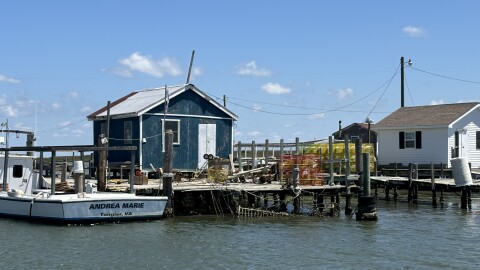Citizen science has previously spurred action by the Richmond government.
-
Groundhog Day is a “cross-quarter day” on the celestial calendar. Cross quarter days are mid-way points between the Solstices and Equinoxes. These days are associated with many familiar holidays whose astronomical roots have largely been forgotten.
-
For nearly 60 years, this office has explored the nature of consciousness.
-
Partner company hopes to have the project up and running by the 2030s.
-
A panel of experts could determine if “pattern of misconduct” occurred.
-
An ongoing review of a former state crime lab analyst’s work uncovered the error.
-
Former Science Museum of Virginia scientist captures Greek family recipes in new cookbook.
-
Early in life, the protein Reelin helps assemble the brain. Later on, it appears to protect the organ from Alzheimer's and other threats to memory and thinking.
-
Head of Harrison Family Translational Research Center discusses advances in treatment.
-
The island's lost two-thirds of its land mass since 1850 and climate change is making the problem worse.
-
Dr. Robert Winn says improved screening methods, vaccines could help wipe out the disease.
-
EPA gets stricter on what constitutes good air.
-
New research highlights a potential connection between water weight and seismic activity.
-
"We really are just trying to inspire people to get out, get their hands dirty."
-
This tool from NASA allows you to get your exact window to see Monday's eclipse; all you need is your ZIP code.
-
Scientists are optimistic that gene-edited animals could provide a new source of organs for transplantation. Pig organs modified to minimize rejection are now being tested in humans.
-
The institution's new policy is expected to be finalized later this year.
-
Wildfires worsened by climate change spewed smoke over much of North America this year. It's a new reality Americans haven't yet processed: how dangerous the smoke is for human health.
-
Provisional data from 2022 showed a bright spot in the trend of rising suicides in the U.S.
-
-
Tian Tian, Mei Xiang and Xiao Qi Ji will depart D.C. for China earlier than originally expected.
























